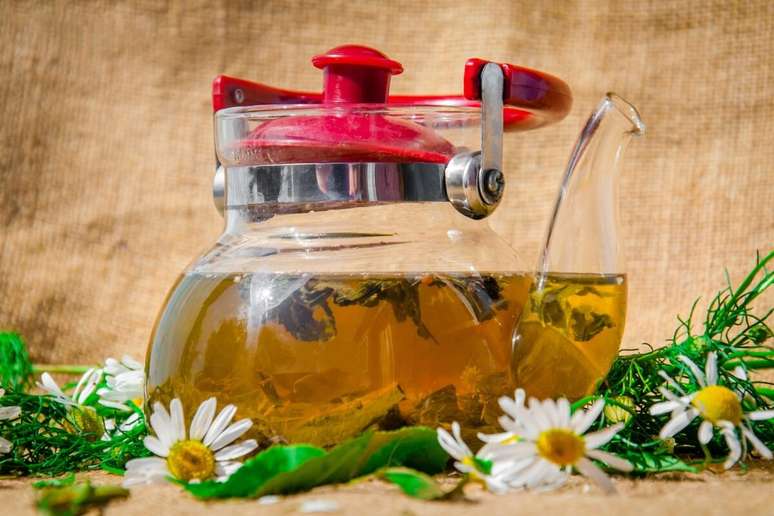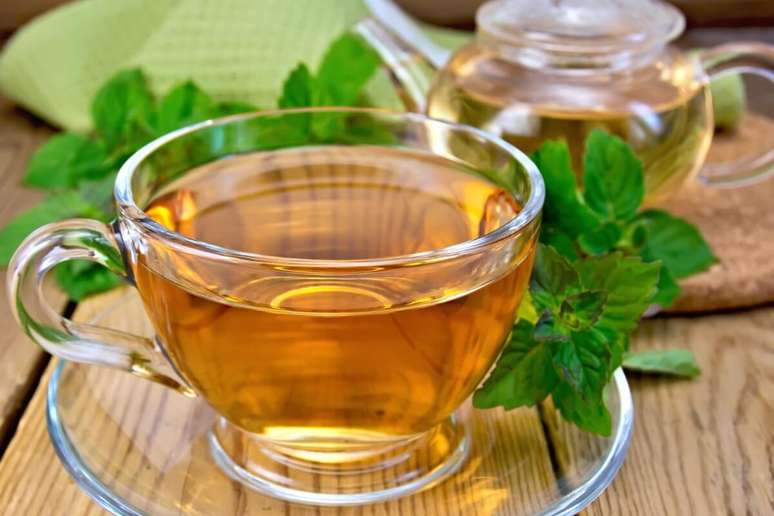Learn how teas and certain foods can help improve digestion and well-being
Hectic daily life and often unbalanced diets can overload the body, causing digestive difficulties that directly affect the quality of life and general well-being, such as indigestion, reflux, constipation and abdominal bloating. To avoid these problems, increasing your consumption of natural foods is a great choice.
Next, naturopathic pharmacist Jamar Tejada, from the capital Sao Paulo, recommends 8 teas and fruits that promote intestinal health. Check!
1. mint tea
Mint is known for its calming and relaxing properties, relieving symptoms such as swelling and abdominal discomfort. The essential oil present in the plant contributes to the release of gases and the relaxation of the muscles of the digestive tract. It can be consumed in herbal teas.
To prepare the drink, simply boil a cup of water, add a teaspoon of fresh (or dried) mint leaves, cover and leave to infuse for 5-10 minutes. Then strain and consume the tea while it is still hot.
“To facilitate digestion, the advice is to drink tea immediately after meals, as it helps reduce the feeling of bloating, relieves gas and can help resolve discomfort caused by poor digestion. It is not recommended to take it on an empty stomach for people who suffer from reflux, as mint can relax the esophageal sphincter, facilitating the return of acids into the esophagus”, teaches the pharmacist.
2. tea espinheira-santa
Traditional in folk medicine, espinheira-santa is indicated for treating gastritis and ulcers, as well as protecting the stomach mucosa. Its regular consumption can help reduce acidity and promote the healing of internal injuries.
“To relieve digestive disorders and prevent gastritis, the ideal is to consume tea prepared with 1 cup of boiling water and 1 tablespoon of dried espinheira-santa leaves. The tea should be left to infuse for 5-10 minutes, then filtered and consumed hot, about 30 minutes before meals it helps protect the stomach mucosa, reducing excess acidity and improving digestion”, explains Jamar Tejada.
3. tea ginger
Ginger is a powerful anti-inflammatory that helps speed up the process digestionstimulating the production of digestive enzymes. Furthermore, it is an excellent natural remedy against nausea and motion sickness. To take advantage of its benefits it can be consumed as a herbal tea, prepared with 1 cup of boiling water and 1 teaspoon of grated fresh ginger.
“It is also worth using powdered ginger in small quantities (about 1/4 teaspoon) in juices or smoothies, adding a slight acidity which aids digestion, or even chewing a small slice of fresh ginger before meals, this can help activate digestive enzymes and relieve symptoms such as nausea and bloating”, teaches the specialist.
4. tea Guacatonga
With anti-inflammatory and stomach-protective properties, guaçatonga is used to combat heartburn and reflux. This herbal tea is particularly recommended for those who suffer from frequent discomfort due to excess acids and should be consumed twice a day, preferably after the main meals (lunch and dinner). To prepare it, boil 1 cup of water and add 1 tablespoon of dried guaçatonga leaves. It is necessary to cover and leave to infuse for about 10 minutes.

5. tea chamomile
Famous for its calming properties, chamomile is an excellent digestive and helps reduction of colic and gas. It is particularly recommended after large meals to relax the intestinal tract. “Chamomile can be consumed up to three times a day, approximately 30 minutes after meals. It helps relax the digestive system and relieves gas, discomfort and cramps,” says the pharmacist.
To make the tea, Jamar Tejada recommends boiling 1 cup of water and adding 1 tablespoon of dried chamomile flowers, or a teabag, cover and steep for 5 to 10 minutes.
6. tea artichoke
Artichokes have a detoxifying effect and are known to stimulate the production of bile, facilitating the digestion of fats. Its tea is ideal for improving digestion and relieving the symptoms of bloating. “Artichoke herbal tea should be consumed 30 minutes after a meal, especially if heavy or high in fat. It can be prepared with 1 tablespoon of dried artichoke leaves (or a sachet of artichoke herbal tea) and 1 cup of water herbal tea, and should be left to infuse for 5-10 minutes,” says the expert.
7. tea rosemary
Rosemary has antioxidant and anti-inflammatory properties that aid digestion and reduce gas formation. Its regular consumption helps maintain the balance of the body intestinal flora. “The tea can be prepared with 1 teaspoon of fresh or dried rosemary leaves and 1 cup of water, and should be consumed after meals to aid digestion, up to a maximum of two cups per day”, teaches Jamar Tejada.
8. Pineapple, papaya and plum
In addition to teas, the pharmacist also recommends consuming fruits such as pineapple, papaya and plums. “Because it is rich in bromelain, pineapple can aid digestion after a meal rich in meat or other heavy foods, while papaya contains the enzyme papain, which helps break down proteins and improves digestion. Plums, in turn, they have a high content of fiber and compounds that stimulate intestinal function and can be consumed in tea or natural juices, which help prevent constipation and improve intestinal regularity”, says Jamar Tejada.
The specialist also emphasizes that the use of these herbs and fruits can complement daily care, but does not replace professional support in case of serious digestive disorders. A balanced diet and consistent hydration are also essential to maintaining a healthy digestive system.
By Mayra Barreto Cinel
Source: Terra
Ben Stock is a lifestyle journalist and author at Gossipify. He writes about topics such as health, wellness, travel, food and home decor. He provides practical advice and inspiration to improve well-being, keeps readers up to date with latest lifestyle news and trends, known for his engaging writing style, in-depth analysis and unique perspectives.








